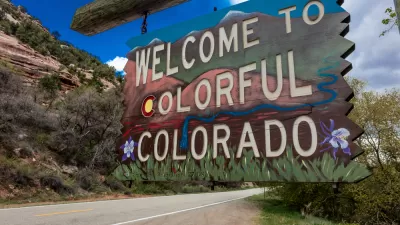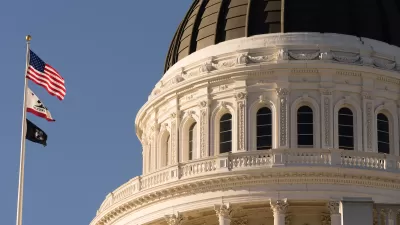California's $10 billion high speed rail bond was not the only transit initiative to pass on Election Day. Over 70% (double the customary rate) of all transportation initiatives passed, including 18 that raise sales or property taxes.
"Some 23 initiatives were approved nationwide last week that will inject $75 billion into transportation systems, according to the Center for Transportation Excellence, a nonpartisan research group that promotes mass-transit service. Among the winners: Nearly $10 billion in bonds to start building a high-speed rail network in California, and $18 billion to expand mass-transit service in the Seattle area.
Overall, more than 70% of the major transportation-funding measures on ballots this year were approved, about double the rate at which initiatives are usually passed, the CFTE said. This rate of success came as a surprise to many transportation advocates, who were expecting a less enthusiastic response to tax increases and public debt at a time of economic and fiscal turmoil. Of the measures approved, the CFTE noted, 14 will increase sales taxes, four siphon funds from property taxes and three authorize bonds.
The election results are good news for companies that are big players in the mass-transit business, such as Siemens AG, Bombardier Inc. and Alstom SA, and for hundreds of small suppliers to bus and railcar makers."
However, passage of a ballot measure does not assure all projects will get built.
"The clear risk is...can California go out and raise $10 billion to do this at a cost that makes sense?" said Art Hatfield, an analyst at Morgan Keegan in Memphis, Tenn. "Is the appetite there to invest in these projects from private money?"
FULL STORY: Mass-Transit Projects Fared Well at Polls

Alabama: Trump Terminates Settlements for Black Communities Harmed By Raw Sewage
Trump deemed the landmark civil rights agreement “illegal DEI and environmental justice policy.”

Study: Maui’s Plan to Convert Vacation Rentals to Long-Term Housing Could Cause Nearly $1 Billion Economic Loss
The plan would reduce visitor accommodation by 25% resulting in 1,900 jobs lost.

Why Should We Subsidize Public Transportation?
Many public transit agencies face financial stress due to rising costs, declining fare revenue, and declining subsidies. Transit advocates must provide a strong business case for increasing public transit funding.

Paris Bike Boom Leads to Steep Drop in Air Pollution
The French city’s air quality has improved dramatically in the past 20 years, coinciding with a growth in cycling.

Why Housing Costs More to Build in California Than in Texas
Hard costs like labor and materials combined with ‘soft’ costs such as permitting make building in the San Francisco Bay Area almost three times as costly as in Texas cities.

San Diego County Sees a Rise in Urban Coyotes
San Diego County experiences a rise in urban coyotes, as sightings become prevalent throughout its urban neighbourhoods and surrounding areas.
Urban Design for Planners 1: Software Tools
This six-course series explores essential urban design concepts using open source software and equips planners with the tools they need to participate fully in the urban design process.
Planning for Universal Design
Learn the tools for implementing Universal Design in planning regulations.
Smith Gee Studio
Alamo Area Metropolitan Planning Organization
City of Santa Clarita
Institute for Housing and Urban Development Studies (IHS)
City of Grandview
Harvard GSD Executive Education
Toledo-Lucas County Plan Commissions
Salt Lake City
NYU Wagner Graduate School of Public Service




























